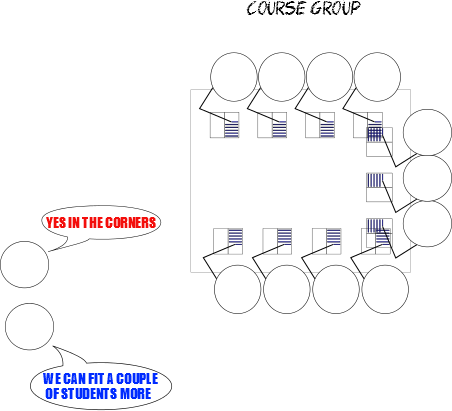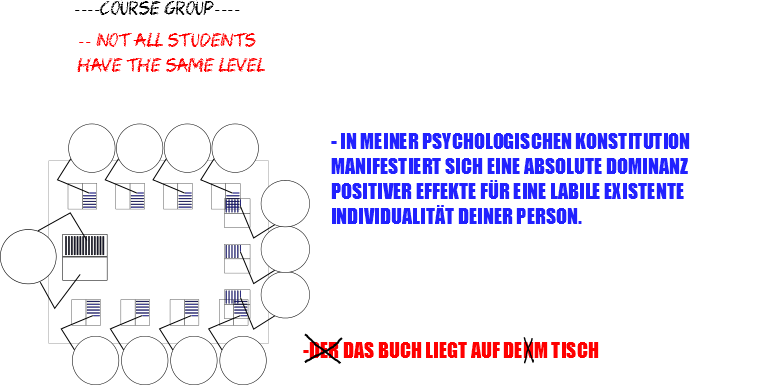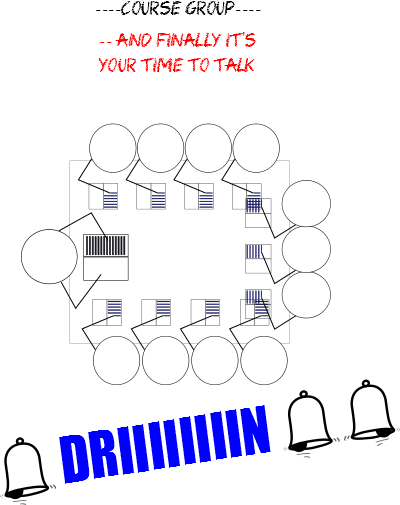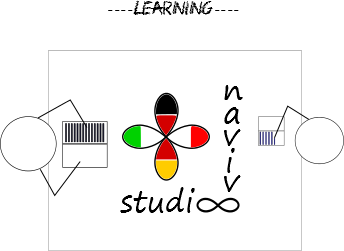Thanks to my many years of teacher activity I was able to gain a lot of useful experiences with group courses and single courses, either in German and Italian.
I can now summarize my experience compiling this list with the 3 basic differences between group and single courses. To get the complete picture I mention here also the possibility to self-learn German.
Self-learning German
If you want to learn a foreign language you can do this in different ways. You can learn German for your own with a book or with online language courses.

The problem with this learning method is that you achieve just a passive knowledge of the language because of lack of practice, that means that you are not able to use your hard-earned language skills with a native speaker and therefore improve them. In the beginning, this could be a cheap method to learn German, but in the long run, it is quite monotonous and not efficient.
After some months of self-learning, you might also realize this is not for you, so you decide to contact a professional, maybe a school.
We are getting to the second possibility of learning German.
The 3 differences between single and group course
As I already mentioned, the following facts are based on my longtime activity of German language teacher for single and group courses.
You are now getting lessons from a professional teacher.
Taking a German course in a group
Group courses start with 2 students and have an open limit of participants. And here it is where one of the main the problems comes up.
1. The number of participants in the class. The majority of the group courses offered by the language schools are overcrowded because of profit-is-king reason. As a result, the concentration of the student suffers because many students speak during the lessons or are busy with other things.
Ok, let’s assume you have been lucky and have found a German course with just 6 participants. And here we are at the second problem.

2. Nonhomogeneous level of the course participants. You want definitely learn German, you are motivated and you do all your homework but… your course mate doesn’t understand things so fast, he doesn’t do his homework, he does not make any effort and ask a thousand explanations slowing down all the class. Multiply this with 6 course’s participants and the level of frustration is at the top.
This happens particularly in the advanced German courses and is the consequence of the fact that students too often don’t have to do any placement test, but schools simply send them into a class (at least this is what happen in some language schools in Munich).
Arrived at this point, let’s assume that you succeeded to convince the less skilled students to change into a lower level course (what could also happen). And we get to the next complication.

3. Time. You are 6 students in a course of 1 and a half hours. The teacher spends half of this time for the lesson. The rest of the time is dedicated just for you all: 45 minutes for 6 students, it means you have 8 minutes to speak, ask questions, clear up doubts. If you happen to be shy, those 8 minutes disappear into thin air.
It’s sad but true that a teacher in a group course with many participants doesn’t have the possibility to clear up personal doubts and questions of each student. As a result, the student loses interest and sometimes get demotivated. And more important, he doesn’t learn.

Private German course.
Despite all bad experiences, you still want to learn and you finally decided to learn properly with a single course, just you and your German teacher.

- Effectiveness. A good language teacher is able to tailor the lesson to the individual needs of the student. If you have a problem, such as with the possessive pronouns, a language teacher can dedicate a whole lesson on it, and there will be no other student to complain about. And you can be sure at the end you will know the possessive pronouns as a German mother tongue.
- Practice. In addition to that, you can practice the lesson content not only theoretically but also practically, with the help of a German teacher. Through a personal language training, you can learn a foreign language much faster than in an overcrowded course where the possibilities to speak are not really many.
- Time. I think it’s not necessary to talk about the time advantage because it’s obvious that you don’t have to share your time with anyone in a single course.
Conclusion.
I tried to highlight in a funny way the differences between a group course and a private course.
The purpose is to encourage you to think about how would you like to learn German, taking into consideration fundamental pros and cons of each course type.
My incontrovertible arguments are:
- For the private course, you spend more, but any cents invested pays back.
- You learn at a much higher rate.
It’s up to you now to find the right balance between the time dedicated to learning the language, and the resources you want to dedicate to it.
In any case, I wish you viel Erfolg!



